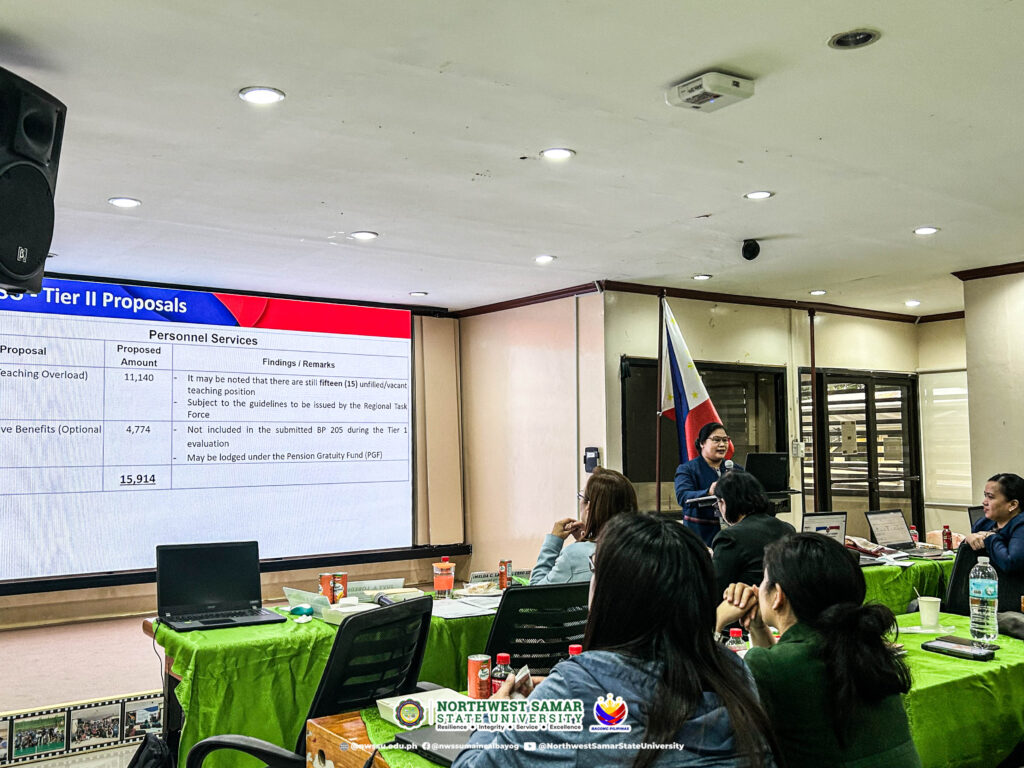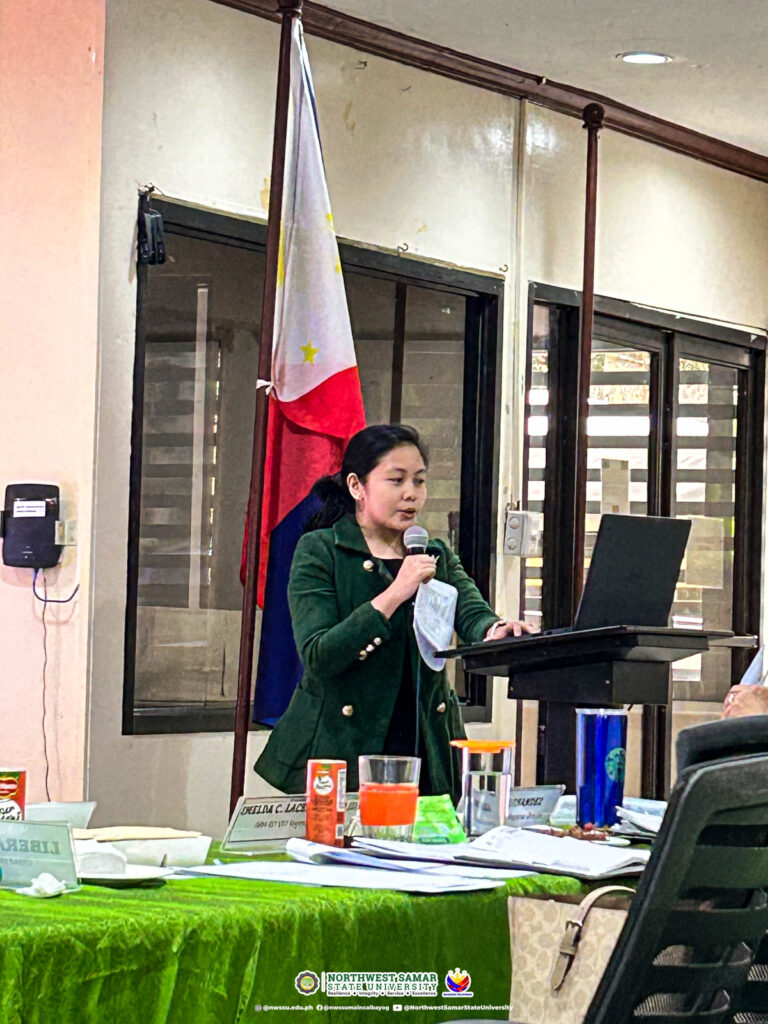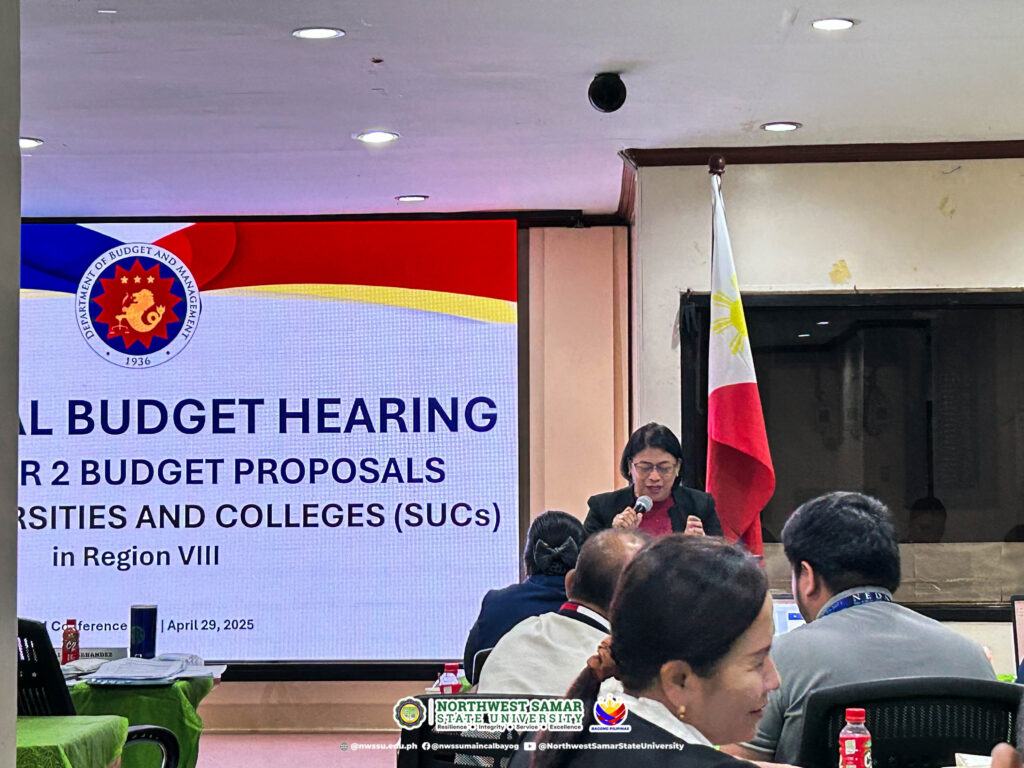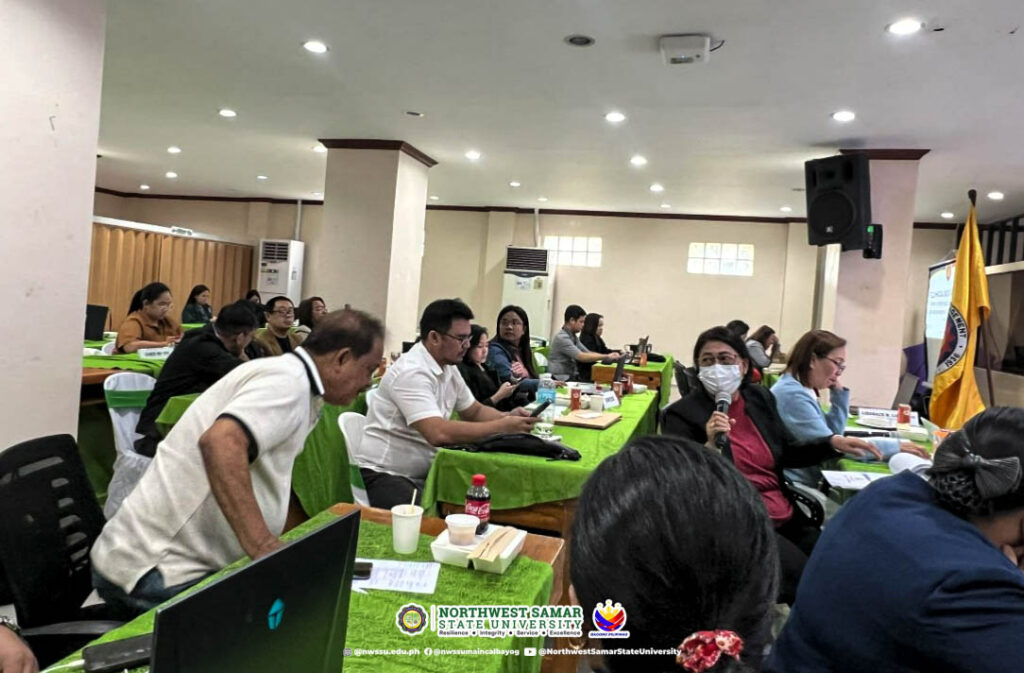
Tacloban City, Philippines — In a compelling presentation during the recent Technical Budget Hearing held in Tacloban City, representatives from Northwest Samar State University (NwSSU) successfully defended a suite of strategic proposals amounting to ₱1.8 billion, aimed at addressing critical institutional needs and advancing the university’s academic and operational priorities.

The NwSSU team presented a comprehensive portfolio of projects and programs sourced from various university units, reflecting an integrated development roadmap that spans infrastructure modernization, academic program enhancement, research, innovation, and extension services.

A major highlight of the proposal is the university’s intensified effort to secure Certificates of Program Compliance (COPC) for its academic offerings, ensuring that all programs meet Commission on Higher Education (CHED) standards and are aligned with national outcomes-based education frameworks. This initiative is coupled with infrastructure plans designed to support laboratories, learning spaces, and technology hubs necessary for quality assurance, research productivity, and inclusive learning.

The proposed budget also includes provisions for innovation-driven programs and externally engaged projects intended to elevate NwSSU’s contribution to community development, local industry support, and regional economic growth. Notably, several proposals directly align with the government’s national development agenda and the National Budget Memorandum (NBM) priorities framework, underscoring the university’s commitment to responsive and high-impact public service.

In defending the ₱1.8 billion proposal, it was emphasized that the institution’s absorptive capacity and readiness to implement projects, citing the university’s high Budget Utilization Rate (BUR) of 99.80% to 100%, and the submission of required documentary requirements.
The successful presentation marks a significant step forward in the university’s ongoing transformation, as it seeks to enhance institutional performance, promote inclusive education, and fulfill its mandate as a catalyst for sustainable development in the region.



